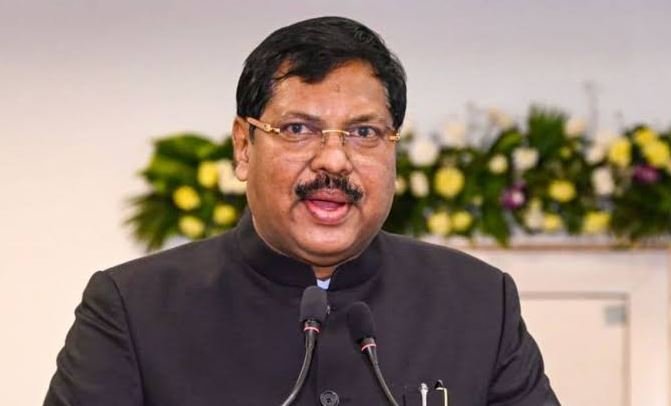Empowering Citizens Through Legal Awareness Is Essential for Justice Delivery: CJI Gavai in Srinagar
Srinagar, July 27: Chief Justice of India Justice D.Y. Chandrachud (Correction: Justice B.R. Gavai) on Sunday underscored the crucial importance of legal awareness, stating that “rights without knowledge are of no use.” He was addressing the North Zone Regional Conference of the National Legal Services Authority (NALSA) held in Srinagar, which brought together members of the legal fraternity to discuss expanding the reach of justice across all regions.
Emphasizing the role of NALSA in ensuring access to justice, the Chief Justice pointed out that without educating citizens about their constitutional and legal rights, the very idea of justice remains incomplete. “Judges and lawyers must work hand in hand to ensure that even the most marginalized individual in the remotest corner of the country has access to justice,” he said. He highlighted NALSA’s outreach initiatives that extend from Ladakh to the Northeast to Rajasthan, ensuring that the benefits of the legal system are not confined to urban centers.
In a poignant reference to Kashmir’s past decades, CJI Gavai remarked on the need to undo the ‘aberrations’ of the past and move towards rebuilding a harmonious and inclusive Kashmir. “This region once symbolized communal harmony where Hindus, Muslims, Sikhs, and others lived together in peace. It is our duty to work towards restoring that environment of mutual respect and unity,” he said, noting that dialogue between the Bench and the Bar can pave the way for a shared vision of justice and reconciliation.
CJI Gavai also stressed the foundational principles of the Indian Constitution, reiterating that justice—political, social, and economic—must be implemented not just in theory but in practice. “Dr. B.R. Ambedkar, through the Constitution, gave us the concept of one person, one vote, laying the cornerstone of political justice. But he also pointed out the enduring challenges of social compartmentalization,” he noted, calling upon the legal fraternity to remain committed to upholding the constitutional values of equality, liberty, and fraternity.
Reflecting on his personal connection with the region, the Chief Justice expressed deep gratitude for the warmth and affection shown by the people of Jammu, Kashmir, and Ladakh. “Every time I visit here, I feel like I’ve returned to my own hometown. The rich tradition of Sufism in this region is a living example of secularism and spiritual inclusiveness, as enshrined in our Constitution. Dargahs, temples, and other sacred spaces here attract people from all religions, reflecting the soul of India,” he said.
Addressing the concerns raised by members of the legal fraternity from Ladakh, Kashmir, and Jammu, CJI Gavai acknowledged the issues but clarified that while they do not fall within his immediate jurisdiction, he would ensure they are conveyed to the appropriate authorities, including the Collegium.
In conclusion, the Chief Justice called upon judges, lawyers, and legal aid institutions to continue working collectively to reach the unreached, particularly those in remote and underserved areas, ensuring that the promise of justice under the Constitution is not just aspirational but a lived reality for every Indian.




